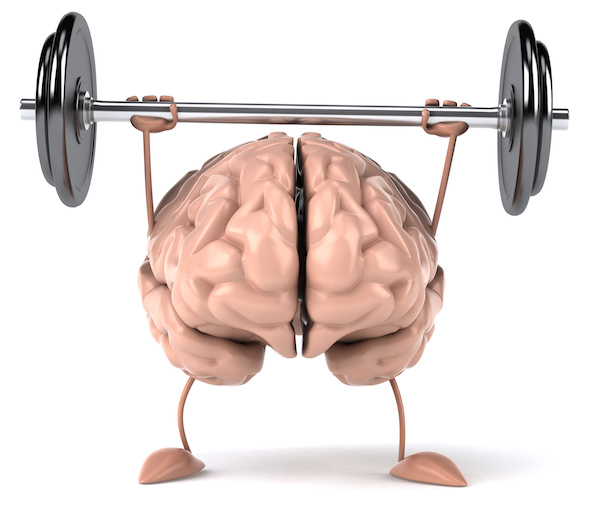Exercise For Better Brain Health

We all know that exercise is great for our muscles, our bones, joints, how we look, and how we feel. However, what about exercise for better brain health? It’s true. You may not believe it but the stakes of not exercising are higher than you might have thought.
Most folks don’t get enough exercise, and we have a plethora of excuses. Too tired, no time, too expensive, no motivation, and sadly, 25% of us say we are simply okay with being sedentary.
Does this sound familiar? If so, you’re far from alone. Most of us, age 40-plus, are not logging the recommended 2.5 hours per week of moderate to vigorous physical activity that’s good for us, and importantly, our brains. Staying active is key to maintaining our brain health. Getting regular exercise can even change our brain structure and improve its functioning.
Interestingly, a thirty-minute cardio session pumps extra blood to your brain, to deliver the oxygen and nutrients it needs to perform at its best ability. Cardio will also flood the parts of the brain with chemicals, including serotonin, the famed mood booster; dopamine, which affects learning and attention; and norepinephrine, which influences attention, perception, motivation, and arousal. This exercise-induced chemical cocktail has a powerful impact. “By elevating neurotransmitters in the brain, it helps us focus, feel better, and release tension,” says, John Ratey, Ph.D., a clinical associate professor of psychiatry at Harvard Medical School.
New research has found that this kind of exercise may even cause permanent structural changes to the brain itself. People who participate in purposeful exercise show beneficial changes in brain structure and function. People who lead a physically active lifestyle have a lower risk of cognitive decline.
By exercising regularly, all that rushing of blood and hormones primes your brain to grow. In one study, researchers scanned the brains of people who exercised for one hour per day, three days a week, for a duration of six months. They discovered an increase in the size of the hippocampus, the part of the brain that controls memory and learning. Working out literally bulked up the study participants’ brains, allowing them to perform better at tasks that require concentration and recall.
Remaining active appears to be critical in warding off memory loss. While there is no proven connection between preventing Alzheimer’s disease and exercising, remaining active can delay the creeping memory loss that begins in our thirties. Canadian researchers found that elderly adults who remained active into old age via walking around the block, cooking, gardening etc. scored better on cognitive function tests than those who led wholly sedentary lives. The study was conducted over a five-year period and about 90 percent of those with the greatest daily energy could remember and think just as well year after year, while those who were less active experienced more memory loss. According to the researchers, vigorous exercise isn’t necessary to retain memory, simply completing household tasks and going for brief strolls play a large part on avoiding memory loss in the elderly.
As we age, maintaining and improving our brain health can help us stay in our own homes longer. Having the ability to stay independent longer also helps maintain a sense of self-worth. The best part? You can begin an exercise program today. There’s no real reason to wait!
If you are exercising alone, or even with a group, having a medical alert device through LifeFone can provide immediate medical care with a push of a button. No matter if you are walking, doing household chores, or in a workout routine.
FREE BROCHURE Today!
